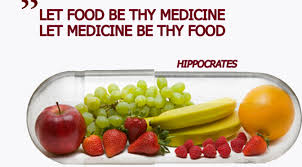
Breaking News
 The Poo Doctor: This Gut Mistake Leads To Cancer. The Cheap Spice That Helps Repair...
The Poo Doctor: This Gut Mistake Leads To Cancer. The Cheap Spice That Helps Repair...
 Vaccine ingredients Exposed - Children's Health Defence "CHD"
Vaccine ingredients Exposed - Children's Health Defence "CHD"
 Microsoft's Agentic AI Push: Genius for Business or Disaster for Your Personal Computing?
Microsoft's Agentic AI Push: Genius for Business or Disaster for Your Personal Computing?
Top Tech News
 Laser weapons go mobile on US Army small vehicles
Laser weapons go mobile on US Army small vehicles
 EngineAI T800: Born to Disrupt! #EngineAI #robotics #newtechnology #newproduct
EngineAI T800: Born to Disrupt! #EngineAI #robotics #newtechnology #newproduct
 This Silicon Anode Breakthrough Could Mark A Turning Point For EV Batteries [Update]
This Silicon Anode Breakthrough Could Mark A Turning Point For EV Batteries [Update]
 Travel gadget promises to dry and iron your clothes – totally hands-free
Travel gadget promises to dry and iron your clothes – totally hands-free
 Perfect Aircrete, Kitchen Ingredients.
Perfect Aircrete, Kitchen Ingredients.
 Futuristic pixel-raising display lets you feel what's onscreen
Futuristic pixel-raising display lets you feel what's onscreen
 Cutting-Edge Facility Generates Pure Water and Hydrogen Fuel from Seawater for Mere Pennies
Cutting-Edge Facility Generates Pure Water and Hydrogen Fuel from Seawater for Mere Pennies
 This tiny dev board is packed with features for ambitious makers
This tiny dev board is packed with features for ambitious makers
 Scientists Discover Gel to Regrow Tooth Enamel
Scientists Discover Gel to Regrow Tooth Enamel
 Vitamin C and Dandelion Root Killing Cancer Cells -- as Former CDC Director Calls for COVID-19...
Vitamin C and Dandelion Root Killing Cancer Cells -- as Former CDC Director Calls for COVID-19...
First of Its Kind Study Shows that Change in Diet Alone -- Not Drugs -- is Curing Diseases

"Let medicine be thy food and let food be thy medicine." – Hippocrates
In the fourth century BCE, the most famous Greek physician made the bold claim that disease was caused naturally, not by the gods. Environment, diet and living habits all played a part in the health of a person.
The tools and techniques of modern science have allowed us to uncover many secrets of nutrition. But we're still just scratching the surface of the complex ways in which food compounds interact with the body.
As Mat Edelson wrote for Hopkins Medicine, the rise of corporatism had a big influence on medicine.
"Big pharma was scarce with cash, because they can't patent a food's natural properties. And from a practical viewpoint, studying food with its thousands of chemicals and nutrients is incredibly complex. By comparison, targeting and studying a single drug for efficacy in a double-blind model was far more straightforward and lucrative to both researchers and industry."
Granted, some pharmaceutical products have given a better quality of life to many people, but the singular focus of making a pill to treat disease has come at the cost of virtually ignoring food as medicine.
Dr. David Suskind, a gastroenterologist at Seattle Children's, is breaking the mold. Suskind has produced the first clinical evidence that food can indeed be medicine.
"In a first-of-its-kind-study led by Suskind, published today in the Journal of Clinical Gastroenterology, diet alone was shown to bring pediatric patients with active Crohn's and [ulcerative colitis] into clinical remission…
In the small, prospective study, patients were put on a special diet called the specific carbohydrate diet (SCD) for 12 weeks as the sole intervention to treat their Crohn's or UC. SCD is a nutritionally balanced diet that removes grains, dairy, processed foods and sugars, except for honey. The diet promotes only natural, nutrient-rich foods, which includes vegetables, fruits, meats and nuts.
At the end of the 12 weeks, eight out of the 10 patients who finished the study showed significant improvement and achieved remission from the dietary treatment alone."
"This changes the paradigm for how we may choose to treat children with inflammatory bowel disease," Suskind said.
More studies will need to be done for confirmation, but these results will certainly draw attention for researchers willing to step outside of the pharmaceutical model.
Food as medicine may prove to have applications outside of inflammatory bowel disease (IBD), as many diseases may be related to chronic inflammation. For example, the charred meat prevalent in American diets is associated with prostate inflammation which can lead to prostate cancer.

 "Boots on the Ground"
"Boots on the Ground"


